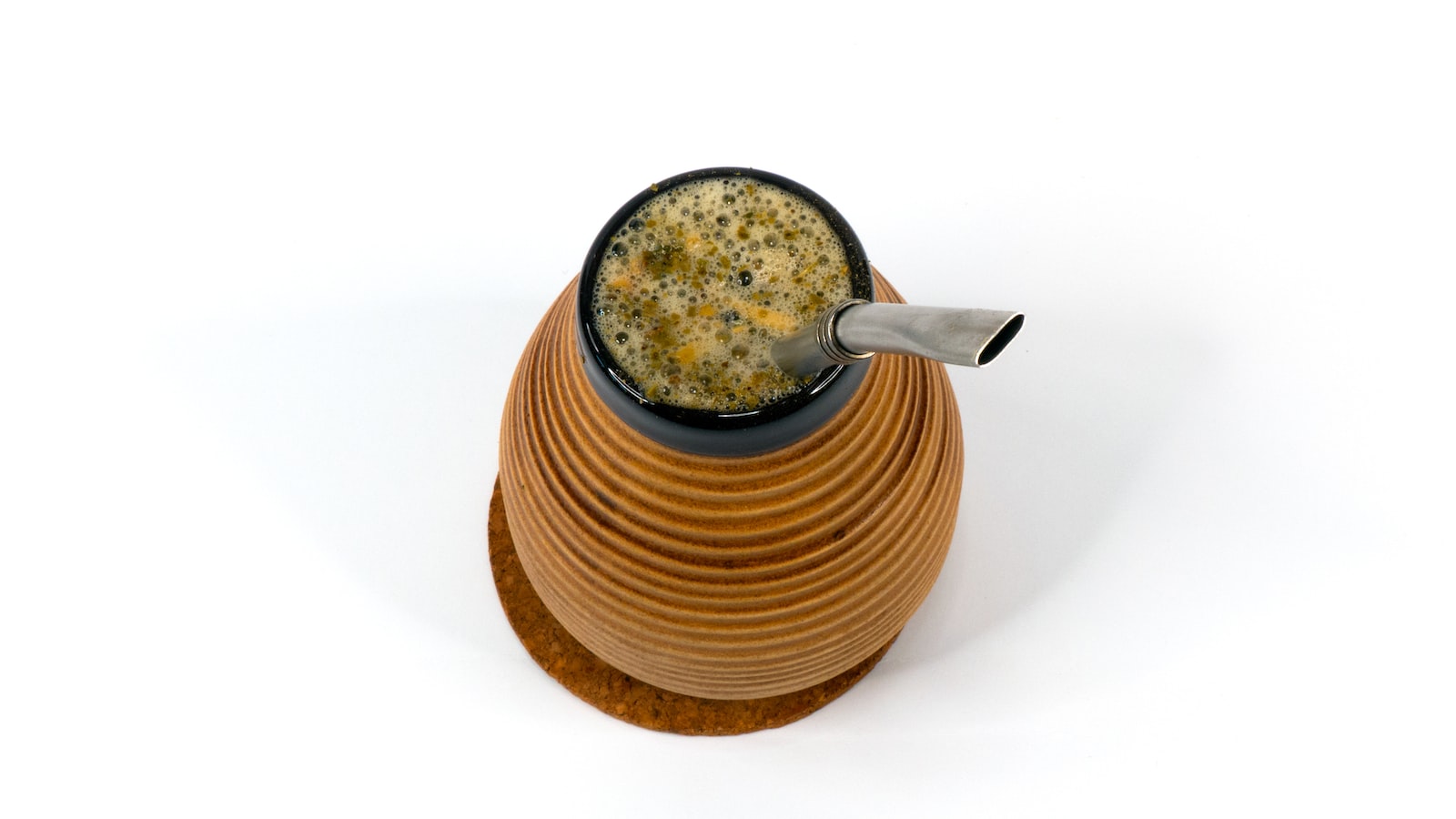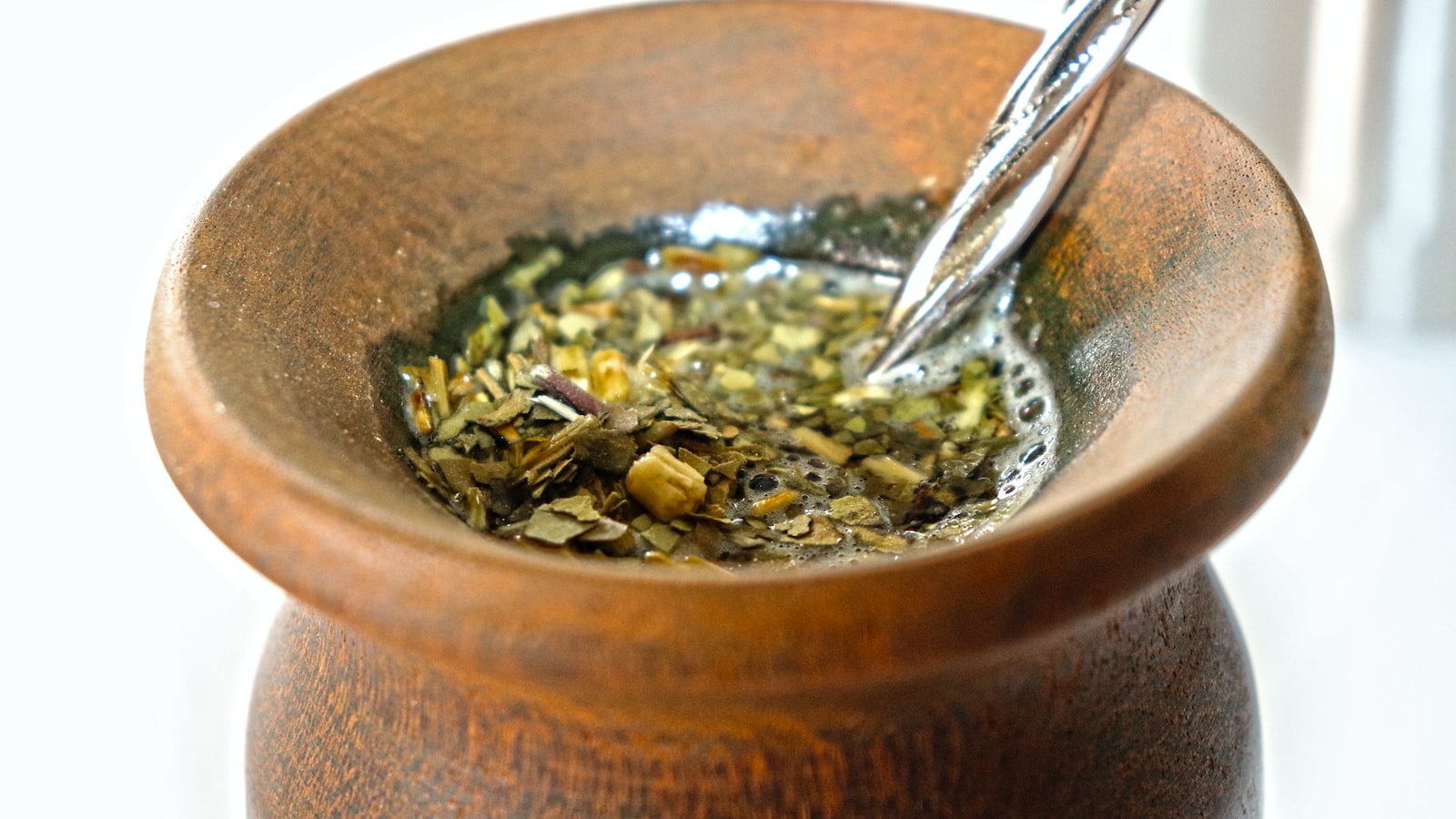Does Yerba Mate Tea Have Caffeine?
Are you curious about the potential energy boost you could get from yerba mate tea? You may be interested to learn about the caffeine content in this traditional South American drink. In this article, we’ll discuss what yerba mate is, the effects of caffeine, and how yerba mate stacks up when it comes to its caffeine content.
Does Yerba Mate Tea Have Caffeine?
Yerba Mate is a traditional South American tea that is made from the dried leaves and stems of the Ilex paraguariensis plant. It is known for its distinct smoky flavor and strong energizing effect.
Yerba Mate naturally contains caffeine. The amount of caffeine in Yerba Mate will vary depending on the type of tea, the brewing method, the length of time that it is brewed, and the water used. Generally speaking, a cup of Yerba Mate brewed from traditional methods can range from 60-90 mg of caffeine. This is slightly lower than the average cup of coffee, which contains 95-165 mg of caffeine.
- However, because Yerba Mate is often steeped for a long period of time, the caffeine content can increase. For example, if you brew a cup of Yerba Mate for 10 minutes, it will have more caffeine than if you brewed it for 5 minutes.
- Yerba Mate also contains a variety of other compounds that can act as stimulants. These include theobromine, theophylline, and K-rho-7 (a compound that has similar effects as caffeine).
- The effects of Yerba Mate on the body are different from that of coffee. Instead of giving you a rush of energy, Yerba Mate gives you a more sustained and balanced boost of energy over a longer period of time.
Overall, Yerba Mate does contain caffeine. The amount of caffeine will vary depending on the type of tea, the brewing method, and the length of time that it is brewed. However, it also contains other compounds that act as stimulants, which gives it a unique effect on the body.

Other Benefits of Yerba Mate Tea
Yerba Mate Can Help Improve Mental and Physical Performance:
Yerba mate may help you get a mental boost throughout the day, helping you stay alert and focused. It contains xanthines, a type of chemical compound found in coffee that can help improve alertness and mental performance. Additionally, xanthines can help boost physical performance. People have reported increased levels of energy after drinking yerba mate, thanks to these compounds.
Yerba Mate Has Potent Antioxidants and Nutrients:
Yerba mate is also a great source of antioxidants and nutrients. These include vitamins A, C, and E, minerals like calcium and magnesium, as well as polyphenols which have been found to have powerful antioxidant properties. Its antioxidant content can help to reduce inflammation and protect your cells from the damaging effects of free radicals.
Yerba Mate Can Help with Weight Loss:
Yerba mate contains theobromine, a compound with stimulant properties similar to caffeine, but weaker. Studies have shown that it can help curb appetite and boost your metabolism, leading to increased fat-burning and weight loss. Additionally, its stimulant properties can also help to reduce fatigue and improve energy levels, making it easier to exercise and stay active.
Yerba Mate Supports Heart Health:
Yerba mate also contains the antioxidant chlorogenic acid, which has been found to help reduce levels of bad cholesterol and triglycerides in the blood. This can help reduce your risk of heart disease and stroke by keeping arteries clear and healthy. Additionally, it also contains saponins, compounds that have anti-inflammatory and cardiovascular health benefits.
Yerba Mate Can Help with Digestion and Detoxification:
Finally, yerba mate can help aid digestion and support detoxification. It contains inulin, a type of soluble fiber, which helps keep your digestive system running smoothly. Additionally, its stimulant effects can help stimulate digestive juices, while its antioxidant content can help flush toxins out of your body.
How Much Caffeine Does Yerba Mate Tea Have?
Yerba Mate tea is often praised for its alleged health benefits and its stimulating effects, so many people wonder how much caffeine it contains. It’s important to note here that caffeine levels in yerba mate vary depending on the amount of tea used, the type of mate, the age of the leaves and the length of the infusion.
Generally speaking, yerba mate contains approximately 85 milligrams of caffeine per 8-oz serving, which is slightly lower than what you would find in a cup of coffee. However, this varies from product to product and from brand to brand. Here’s a quick overview of caffeine levels in different preparations of yerba mate:
- Traditional Mate: Up to 150 mg/8-oz serving
- Instant Mate: Up to 130 mg/8-oz serving
- Brewed Mate: Up to 85 mg/8-oz serving
- Loose Leaf: Up to 75 mg/8-oz serving
It’s also worth mentioning that, unlike coffee, the stimulating effects of yerba mate can last for several hours. This is because caffeine in yerba mate is delivered in a slow, steady release due to other compounds in the tea.

The Bottom Line
Yerba mate tea is a refreshing beverage that delivers a range of health benefits to its drinkers. It also offers a slight boost of energy from its caffeinated content. However, without knowing the exact content of each mate tea, it can be difficult to accurately estimate the amount of caffeine in the drink.
Here’s the conclusion: Yes, yerba mate tea contains caffeine, but it’s generally lower in caffeine compared to coffee or black tea. It’s also a healthier alternative because of its antioxidant and vitamin content.
- Yerba mate tea contains caffeine but in lower amounts compared to coffee or black tea.
- It is a healthier alternative to other caffeinated beverages due to its antioxidant and vitamin content.
- It can be difficult to estimate the exact caffeine content in yerba mate tea without knowing the exact content of each tea.
